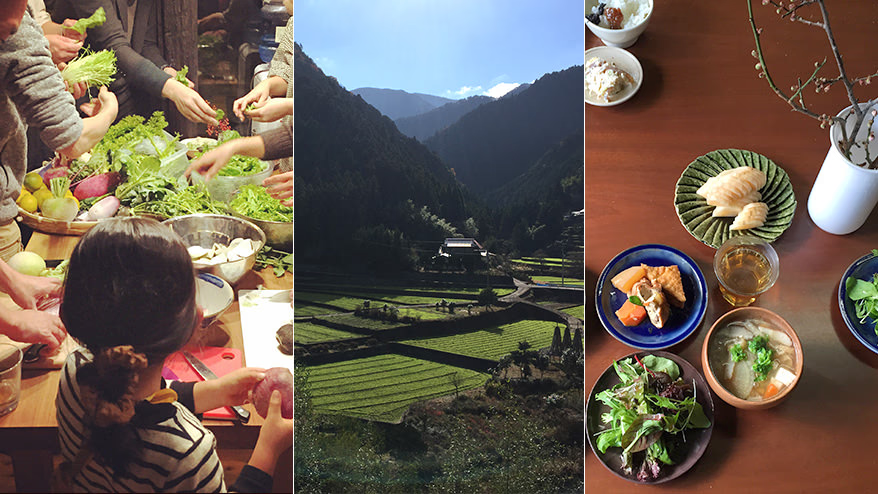神山町在住、プロデュース部 部長の真鍋です。私たちの仕事は、社会とつながっているか。今回は、神山の地方創生戦略案のひとつ FOOD HUB PROJECT について書きます。

2015年12月25日に、神山町の地方創生戦略が発表されました。
昨年7月から、この戦略を各自が主体性をもってつくっていくワーキンググループに神山の住民として加えていただき、約半年かけて複数回の勉強会とディスカッションを重ねました。その戦略の中でも、私は主に「循環の仕組みづくり」における食のテーマに関わっていました。
循環の仕組みづくり。
地域で巡る、お金。
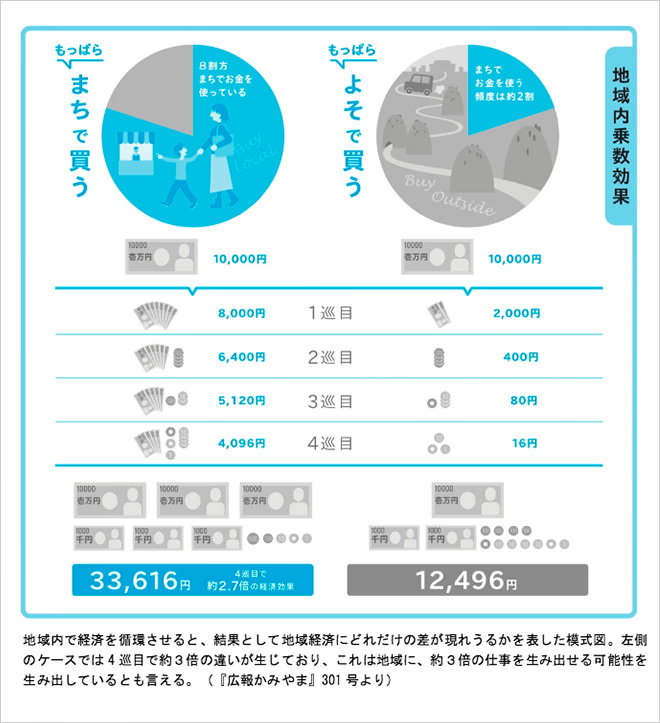
神山町創生戦略 Page 40
「循環の仕組みづくり」とは何か? 地域におけるお金の循環で考えてみたいと思います。
私たちが住んでいる寄井というところは、地元では神山の銀座と言われるエリアw。
周囲には、2軒の小さなスーパー、1軒のコンビニ、2軒の小さなガソリンスタンドがあります。
神山では車がないと毎日の生活がとても大変です。
日々の暮らしの中で神山のガソリンスタンドでガソリンを入れるのか、それとも車で峠を越えて30分ほど移動した街で、何かの買い物ついでに、地元より数円安いセルフのスタンドで入れるのか。
地元でガソリンを入れたとしても、ガソリンスタンドで給料をもらっている人が、地元のスーパーを使わず、品ぞろえも豊富な隣町のスーパーで買物をしていたらお金は神山町内で循環していることになりません。(そもそも石油燃料を購入する、ほとんどのお金が海外にいっていますが...)
また、都会でも同じことが言えます。
全国でチェーン展開しているお店で食べるか、それとも地域に根ざしている家族経営などの小商いのお店で食べるのかで、地元でのお金の巡り方は変ります。実は、都会でも田舎でも意外と地域でのお金の循環を意識して暮らしていないなと感じます。
私たち家族もなるべく日々の食材などを地元でそろえようと努力はしていますが、なかなか難しいのが現状です。「地産地消」ってよく言いますが、実は、田舎に引っ越したとしてもそれは結構大変なことだなと感じます。
でも、神山町のような小さな町に住んでいると、都会ではちょっと意識するだけでは見えづらい、その循環が見えることは良いことだと思っています。日々の生活の中で、お金の力を使って自分が物やサービスを得る時に、少し想像力を働かせるだけで誰にそのお金が渡って行くのかイメージできます。つまり「地域でのお金の循環」=「地域の“あの人”の生活につながっていること」を意識することができるのです。
ではどう「循環する仕組み」をつくるのか?
私がワーキンググループとして加わっていたのが、神山町創生戦略における地域の営農と食文化を進化させる「農業生産法人・フードハブ」(45ページ、5−4−5 )の設立の部分です。
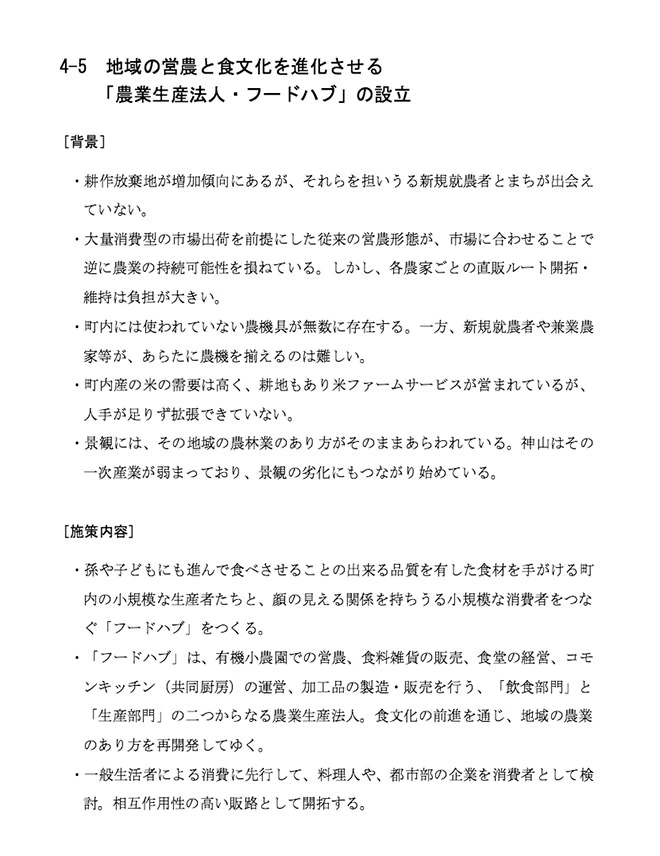
地域での「お金」の循環に加えて、「エネルギー」や「仕事」の循環など、様々な循環がありますが、私たちが取り組んだのは、「食べる」循環です。
議題としてフードハブという考え方が先にあったわけではなく、「地域循環の仕組みづくり」として、例えば「食べる公社」という食の会社を神山で設立するとしたらどんな事業が良いか?という問いかけから始まりました。
このテーマに自らが手を上げて参加したのは、役場の産業観光課・農業係の方を筆頭に、様々な部署から集まった役場の有志5名に加え、JAの若手職員、住民としては私の合計7名。グループ内で以下のような意見が飛び交いました。
- 中山間地域の農業を守りたい
- 農業者高齢化による耕作放棄地をこれ以上増やしたくない
- 若手の新規就農や兼業農家を増やしたい
- 地域の農業をなるべく有機化し、地元で出来たものを食べたい
- 学校給食を地元で育てた食材にして、なるべく有機にしたい
- 地元にある小中高と連携した食のプログラムをやりたい
- 地元で3,000円くらいで飲める居酒屋がほしい
- 地域で人気だったパン屋さんを復活させたい
中でも、私にとってとても印象的だったのが
神山のために、小さいものと小さいもの、少量生産と少量消費をつなぎたい
という、役場の農業係の「彼」が書いた一文でした。
4年前に始めた料理人を中心とした Nomadic Kitchen という食のプロジェクトでも、「小規模の作り手を支援すること」を活動理念のひとつとし、大規模よりも少量で多品種の野菜を育てる農家さんと一緒に活動を続けています。
料理人たちとの活動を通じて分かったのは、規格を統一して大規模に生産、流通させることで効率化してコストを圧縮する現在の流通の仕組みだと、小規模かつ分散した場所で育てられた「規格外」ものは輸送効率が悪いので、「地元」のお店に並びづらいという現状があります。(道の駅やJAなどが運営する産直市場は運営のシステムが異なる)
それは「小さいものと小さいもの、少量の生産と少量の消費をつなぐ」流通の仕組みが上手く機能していないということだと思います。その解決の糸口になりそうだなと思ったのが「Food Hub」という考え方だったのです。
Food Hubの考え方については、『WIRED VOL. 17 NEW FOOD なにを、なぜ、どう、食べる?』でも取り上げられていますが、元は、アメリカ合衆国農務省が推奨している考え方です。
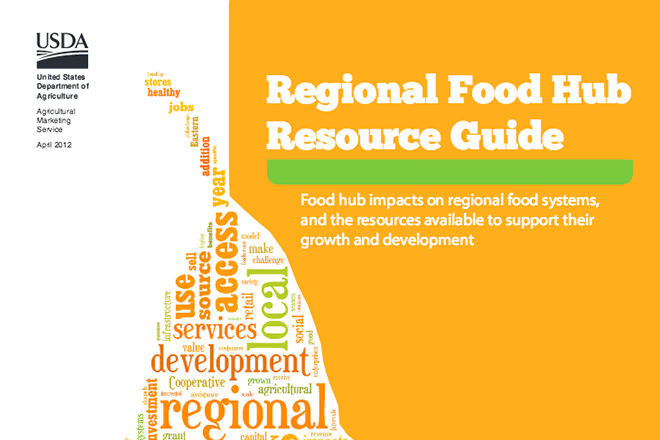
地域のFood Hubは、主に地元の名前が特定できる生産者たちの食品を、集約、保存、流通、そしてマーケティングすることで彼らの能力を強化し、卸売業者や小売、制度的な需要に積極的に応えるビジネス、または組織のことを言う。A regional food hub is a business or organization that actively manages the aggregation, distribution, and marketing of source-identified food products primarily from local and regional producers to strengthen their ability to satisfy wholesale, retail, and institutional demand.
(Reginal Food Hub Resouce Gude)
このFood Hubの基本的な考え方に、若手の農業家を育てる農業支援の仕組みを取り入れると同時に、料理や加工品をみんなでつくる場所、一緒に食べられる場所を組み込むことで地域の人が集まれる場所にしたらどうかと話し合いました。
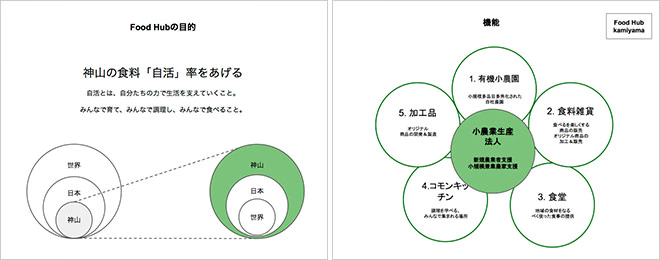
Food Hubの目的と機能。ワーキンググループで提案した資料より抜粋。私たちが目指すのは「自給率」ではなく、「自活率」をあげること。それは自分たちの力で地域の暮らしを支えること。
地域で育て、地域で食べる。
自分たちが正しいと思うことを世の中に問う。
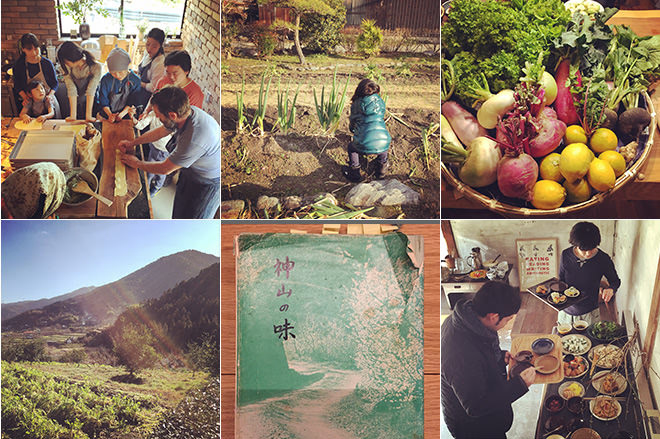
当初、このFood Hubという核となるアイデアは、私の自宅の土間に、みんなが使えるキッチンをつくって、地域の方々や友人の料理人たちにゆるやかに関わってもらうことで育てていけたらいいなぁと考えていました。小さくはじめて少しづつ育てていくことを、神山に引っ越し、自分の手で家族と一緒にやってみる。そんな姿を思い描いていました。
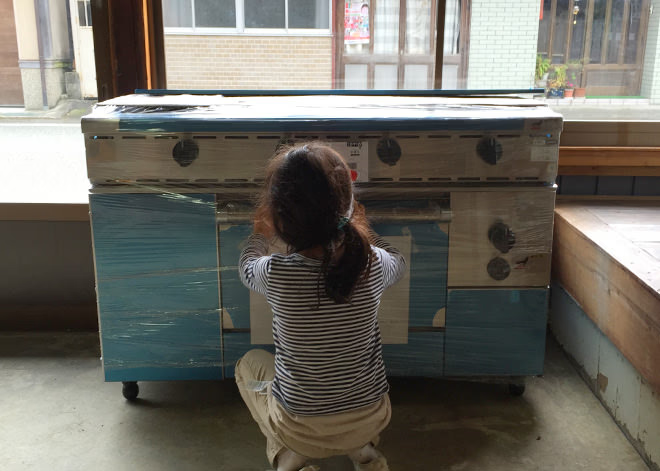
実際に自宅の土間には、業務用のガスオーブンやコールドテーブルなどが半年くらい未使用のまま居座っている(汗
しかしながら今回のワーキンググループのように、立場をこえ、社会的な目的を共有した多様な人たちの集まりが持つ力は不思議です。当初のアイデアがワーキンググループのみんなの想いによってあれよあれよと膨らみ、より必然性を増し、5年、10年後の未来の姿へと変化していきました。
更に勢いは加速します。
このワーキンググループを通じて一緒に活動をし、「神山のために、小さいものと小さいもの、少量生産と少量消費をつなぎたい」という一文を書いた、神山町役場 観光産業課 農業係の「彼」が、町長や町の有識者の方々が参加していた最終結果報告会で、構想段階の「農業生産法人・フードハブ」の企画を「自分は役場をやめてでもこの事業をやりたい」と発言したのです。
(その時、町の人たちは、結構うるうるなっていた気がします。)
彼は、神山では比較的規模の大きい農家さんの息子です。いずれは農業を継いでいくことになるのでしょうが、今の農業のやり方や、現在主力となっている農家さんの高齢化(神山の農家さんの平均年齢はなんと69歳とか!)の現状を考えると、次世代につないでいく中山間地域の新しい農業をここ5年、10年という比較的短期間で生み出して行かないと、次はないという絶対的危機感が「彼」にはありました。
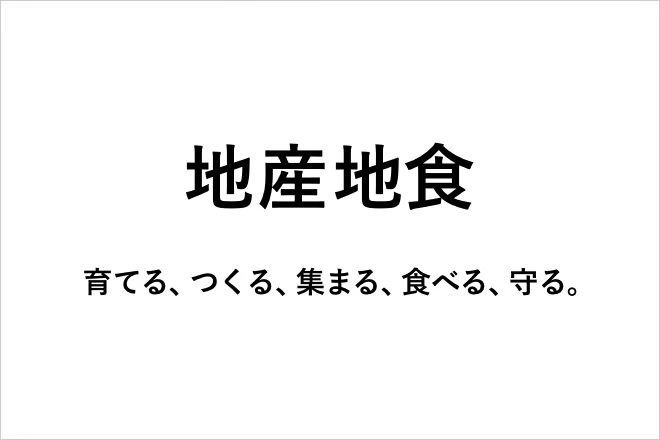
モノサス代表の林は言います。
結局ビジネスとは何かというと「自分が正しいと思うことを世の中に問うこと」。
それが受け入れられたら成功するし、受け入れられなかったら退場させられる。
実は、一番のリスクはお金じゃなくて、「自分が正しいと思うことを世に問う」
ということ。
私たちが、正しいと思うことは「地産地食」。まずは地域で育て、地域で食べること。
それがビジネスとしてある程度のスケールをもって、少量多品種の野菜を育てる中山間地域の農家さんを支え、地域の暮らしを支え、町を支え、次の世代へと受け継いでいくことができるのか? Food Hub Projectは、自分たちが正しいと思うことを、世の中と自分たちに問い続けるオープンな活動です。
来週から、カリフォルニアのベイエリアにプロジェクトのメンバーと向かいます。今回は、そのエリアの代表的なレストランの Chez Panisseを中心とした食のコミュニティーの人たちから、みんなで色々学べたらと考えています。戻った後には、このプロジェクトをより開かれた活動にすべく報告会を実施し、順次レポートなどもアップして行けたらと思っています。
まだ日の目を見るかどうかわからないプロジェクトですが、Food Hub Projectのサポーターになってもらえたら嬉しいです。
